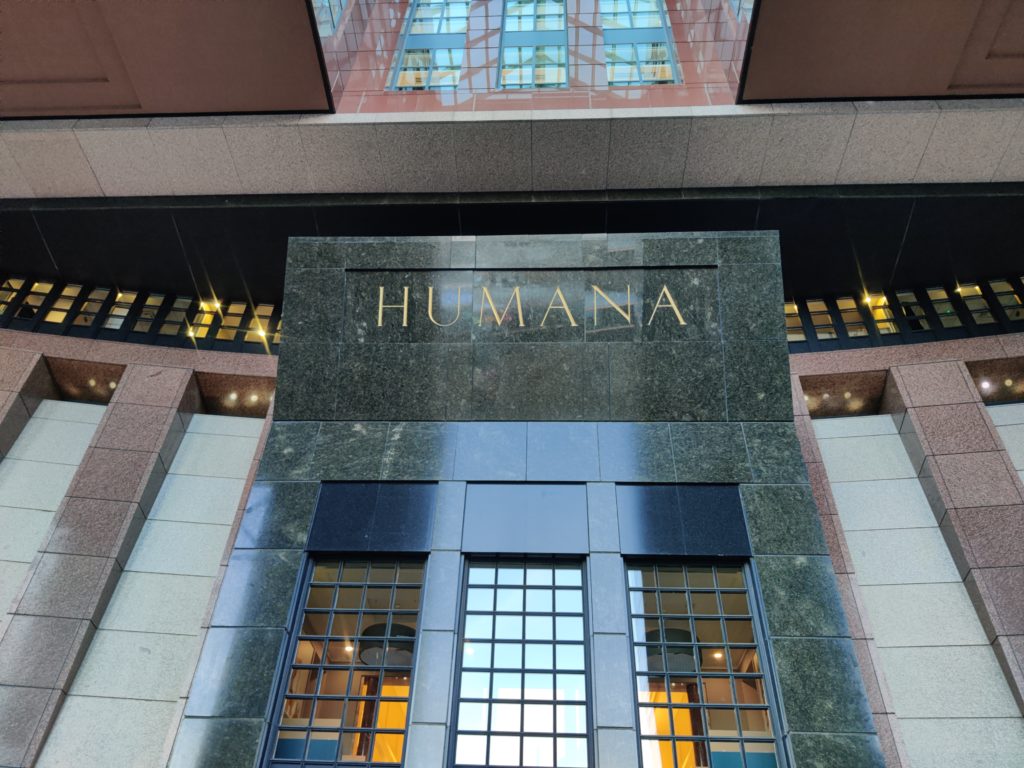Humana (NYSE: HUM) is reorienting the hospice segment of its Kindred At Home subsidiary as a standalone business in anticipation of a forthcoming sale. The company also pledged to boost its overall enterprise value by an additional $1 billion, though Humana is still working out the timeframe in which they expect to hit that target.
Humana in Q3 2021 completed its acquisition of the remaining 60% stake in Kindred at Home for $8.1 billion. This price tag included an equity value of $2.4 billion from its existing 40% ownership of the business. Humana initially acquired 40% ownership in 2018, with private equity firms Welsh, Carson, Anderson & Stowe and TPG Capital then holding the remaining 60%.
The company did not share further details of a specific transaction structure or timing of a sale. However, Humana anticipates providing additional information by 2022’s first quarter earnings report, CEO Bruce Broussard indicated in a fourth quarter earnings call.
“We are committed to advancing our plans to divest a majority interest in our hospice business,” said Brousssard. “We have continued to explore various alternatives for the long-term ownership of the structure of the business, and have initiated steps to reorganize the hospice business for standalone operations while also making investments to improve clinician recruiting and retention to position the business for further growth.”
Humana was recently rumored to have taken another step closer divesting Kindred at Home’s hospice business, according to an Axios report earlier this week. Working in collaboration with Goldman Sachs, the process is anticipated to target private equity buyers and will capitalize on high market valuations in the hospice space, according to Axios. Humana and Goldman Sachs declined to comment to Hospice News regarding these details.
Humana reported a $1.13 billion gain during 2021’s third quarter associated with the company’s previous minority ownership in Kindred at Home, anticipating the deal to make a continued mark as it looks ahead to coming years.
Humana’s health care services segment, which includes Kindred at Home, saw full-year revenues rise by $2.79 billion in 2021 compared to the prior year, a 10% increase. Similar to Q3 2021, the company again attributed this rise to factors such as growing Medicare Advantage business (including higher MA premiums) and state contracts membership, among others.
These gains were partially offset by an “unmitigated COVID-19 related headwind” as market shares fell in 2021, Humana reported, along with transaction and integration costs associated with the Kindred at Home acquisition, which totaled $35 million in Q4 alone.
The pandemic also impacted patient census volumes in the health care services segment. In its hospice operations, Humana saw a decline in admissions during Q4 compared to the prior year’s quarter, though it saw increases on the home health side. COVID-19 also impacted administrative-related costs and expenses associated with additional safety measures taken for staff.
Nevertheless, the company projects revenues for its health care services segment to reach $35.8 billion to $36.3 billion in 2022.
Humana has set its sights on building out its health care service platforms, including primary care business and home health expansion, where the company sees significant opportunities in Medicare Advantage. The health care company and insurance giant is the second largest Medicare Advantage plan provider supporting roughly 5 million beneficiaries across all 50 states, as well as in Washington D.C. and Puerto Rico, according to Broussard.
Among these plans are continued investment in primary care care services. Humana plans to build and acquire a range of 30 to 50 senior-focused centers in 2023 and beyond, Broussard indicated.
The company intends to remain strategic about its overarching acquisition pipeline, approaching 2022 with conservatism as the pandemic continues to impact the health care market, according to Susan Diamond, Humana’s CFO and president of its home-based care business.
“We will continue to prioritize investments in our core business to drive organic growth,” said Diamond. “Strategic tuck-in M&A remains part of our overall framework, and we will be prudent and opportunistic as we focus on organic growth in the near term. There remains to be a lot to learn about COVID, [and] there are certain dynamics that continue to emerge. Approaching our 2022 guidance with conservatism, which we think is a prudent thing to do.”
The company also committed to raise its enterprise value by $1 billion, intending to in overall value that will spur its capacity for growth and further expand of its health care service capabilities and Medicare Advantage business.
The company expects to meet the billion dollar commitment through a mix of cost savings, productivity initiatives and value acceleration from previous investments. Humana also seeks to reduce third-party spending, decrease vendor use, outsourcing work to suppliers and increasing workforce productivity leveraging tech to boost efficiency.
Diamond indicated in the earnings call that as of now Humana expects each of these strategies would contribute equally to the $1 billion target. The company is assessing the timeframes in which it expects to fulfill this pledge, but anticipates limited impact during 2022 as many of these initiviates will see implementation late in the year.
“This billion dollar goal is to have a significant amount of the savings to have a sustainable year by year,” said Broussard. “This isn’t just a one-year shot. We were looking to really focus on the improved productivity. We are very oriented to grow in the primary care in the home area. Those initiatives really would continue to see the planned investments in those areas, and there’s other areas that we will slow the growth or pause as a result of this billion dollar goal.”
Companies featured in this article:
Axios, Goldman Sachs, Humana, Kindred at Home, TPG Capital, Welsh Carson Anderson & Stowe



